2020 Vision: how Australia’s top production companies are adapting to a new reality
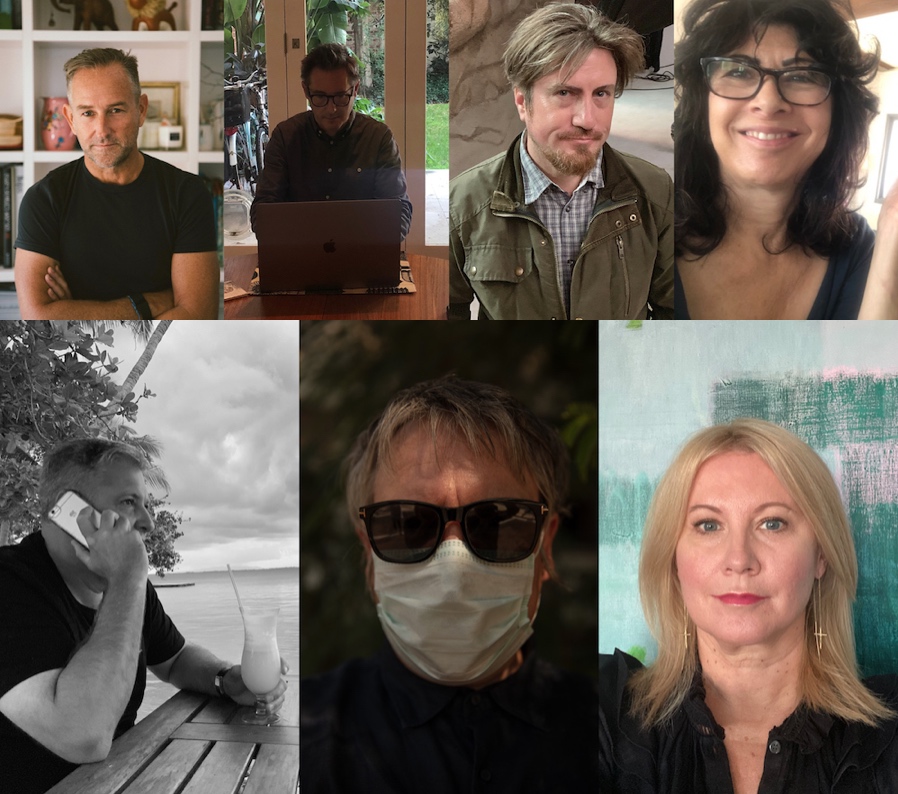
Conversing with agency partners on Zoom, live streaming shoots to clients, casting remotely and practicing social distancing on set, Australia’s top production companies are bravely adapting to a new world order while supporting each other and talking up Australia as a safe and economic place to shoot. Campaign Brief catches up with a few of the nation’s finest…
CB: Overall, how has your business been affected by Covid-19?
Revolver/Will O’Rourke MD/EP Michael Ritchie: We have been significantly affected and anyone in the production business saying that they are not are possibly not telling it how it is. It was a real shock, but seeing how we, and the industry, have effectively adapted has been pretty awesome to watch. We have had to deal with a general downturn in business; this has an effect on all parts of the business. We have managed to keep our full-time staff working, which is really important for us, however, we are most concerned about the freelance industry. Thankfully we are now shooting again and the crew are super keen to work with us to make it all happen in this environment. They have been awesome.
Sweetshop Australia MD Edward Pontifex: It has been a tough time to navigate given it is unchartered waters for all of us. I don’t think that anyone has been immune from the impact of COVID-19. But the most encouraging thing we have witnessed from this event is how supportive we have dealt with this as an industry. We’ve all come together with a real sense of community.
Photoplay EP Oliver Lawrance: In most senses, business has changed radically, but in others it has remained surprisingly normal. At first blush, everything vanished as scripts we were pitching on, or had been awarded, were put on ice or cancelled altogether. In the weeks since, we’ve been lucky enough to have a few scripts come through and shoots happen. So, a form of business has been able to carry on, just on a smaller scale. We’ve scaled down, essentially, so we could keep all of our staff on and be ready to scale back up when the work calls for it.
Filmgraphics EP Anna Fawcett: The jobs I bid on originating from Australia have all been cancelled. Clients I sense are not sure what message they need to be conveying during this period. No one can insure for COVID-19, so the process of getting a shoot together needs to be meticulous and well documented. Everyone in this industry has taken a hit on salary; it’s the only way anyone can get through it.
Taxi Film Production MD & EP Andrew Wareham: I don’t think there is a production company is the country that hasn’t been affected by the COVID-19 crisis in one way or another. By the end of March every major project we had been bidding on or even awarded was postponed or cancelled – all within the space of a week. We went from a full WIP sheet to nothing much overnight. It was a huge shock to the system, but it was the catalyst for us to review, adapt and work to what we COULD do at a basic level. It was this catalyst that allowed us to start implementing stringent health and safety measures on set to try and keep some production wheels turning. Weirdly enough, the overseas inquiries have not stopped coming. Overseas interest in Australia, as a reliable remote shooting option, has peaked and we’re finding that’s where the growth is likely to be post COVID-19.
The Pool Collective MD Cameron Gray: We’ve seen business drop significantly but have managed to keep all of our core team on deck and employed.
The Producers partner and producer Tanya Spencer: The Producers aren’t experiencing a decline in scripts coming in however there is definitely a decline of them making it all the way to production. With regard to our staff, we have been fortunate to not have to stand anyone down however with the decline in production work, we have reduced their hours down to be in line with the work that needs to be put out. We look forward to getting everyone back on-board fulltime over the next few months when the client confidence in advertising returns.
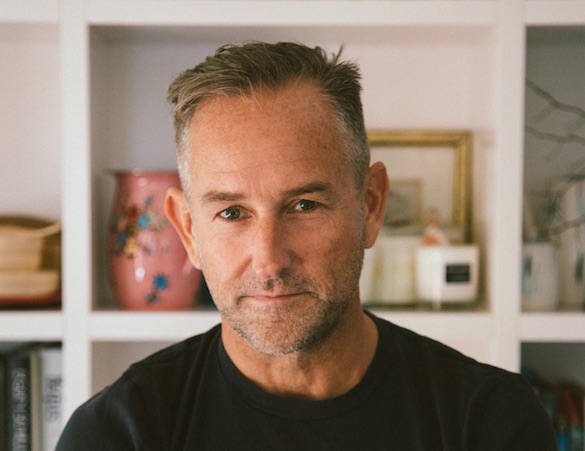
CB: What campaigns/projects have you worked on during lockdown?
Michael Ritchie (pictured above): We have done work for three different banks, a ride share company, a university, a fast food company, an industry body, a superannuation company and a social media company. We are looking at a number of overseas projects, two of which are about to become real, pretty quickly.
Edward Pontifex: Thankfully, there have been quite a few courageous clients who have wanted to find a way to battle through. It’s been so enjoyable working through these challenges with them and seeing the rewards for bravery.
Oliver Lawrance: We’ve worked on campaigns for Telstra, Nestle and Unilever, and have been involved with some agencies in shaping old scripts into new shoot-able forms, or brainstorming clever ways to make things work in these new filming conditions.
Anna Fawcett: I have been bidding on US-based projects due to the uncertainty there. It may take the USA longer to get back, especially with strong unions involved and the insurance issue. Shooting remotely is a new way of doing business so there is a fear factor attached to it and it is very hard for agency and clients to commit. I am bidding on tiny projects locally but clients at the last minute pull out.
Andrew Wareham: We’ve been fortunate to still be shooting for some of our regular F&B clients, as well as clients in the educational sector. We’ve also been helping out agency partners with new business pitch shoots etc, so we’re certainly still moving in that respect. We’re still bidding quite a volume of work, so I feel it might be an explosion out of the gates once everyone is feeling more confident about the crisis.
Cameron Gray: The Monkeys have been very kind to us and kept us busy with a few projects. Have just last week shot something for 303, so we’ve had a slow trickle. Beyond that, we busied ourselves with building an online installation with over 1700 photographs and short videos split across 60 different gallery spaces. We’d ordinarily be gearing up for our annual Pool Grant so we had a lot of creative energy to burn off. We ploughed it all into creating this strangely rudimentary virtual exhibition.
The pause has actually been very useful for analysing and rebuilding all of our internal structures. Last year was our 10th year and it has been a whirlwind with very little time to forensically analyse how we are and have been working. We’ve found the last two months very productive for breaking apart our last ten years and setting up new structures for (hopefully) the next ten.
Tanya Spencer: We have found that the larger brands that we had quotes in with just as COVID-19 restrictions hit Australia are reluctant to spend or are worried about the appearance if they do advertise for anything other than a COVID-19 response and how that will be seen by the consumers.
Our content arm ‘Eric Tom and Bruce’ has continued to thrive and we have seen a strong increase in social media content production, and live streaming requests.
The Producers has been keeping our directors busy with our own blog ‘The Producers Connect’ which features a Virtual Cinematheque where each director has been asked to make a short film in line with a manifesto. It has been gathering great interest both from agencies in Australia and overseas. The directors enjoy the creative freedom as well as the challenge and it’s great to see them all supporting each other while they are doing something that they love.
CB: How are you collaborating with your clients and agencies differently?
Michael Ritchie: It’s all pretty different, I guess. We are having a lot of conversations that are supportive, and we find ourselves giving confidence to agencies and their clients to actually keep making things. We have really thoroughly worked through protocols to manage safe work places while we are shooting and we have developed this more and more on every single project we do. It’s a fluid document that improves each week. We are also working with agencies in terms of what can and can’t be done and if it can’t be done, what is a smart way to work through it. My fellow Revolver EP, Pip Smart, is co chair of the CPC and I am incredibly proud of what she has done with Lucas and Lucia to bring forward some really smart thinking to keep us all shooting. This has been incredibly galvanising for the industry.

Edward Pontifex (above): We have found that our clients and agencies continue to lean on us to find creative solutions for production. One of the main areas that we have found beneficial is that the dialogue is starting far earlier in the process. Being involved at concept stage has meant that we can partner with them to find the best creative solution, especially as the restrictions constantly change.
Oliver Lawrance: Everything is remote now. Well, almost everything. All of our client and agency meetings are done online with Zoom, Hangouts or Teams, and they often patch into set from afar to watch a live stream feed from the camera. Most of the time it works really well and while there’s a bit of extra running around to collate feedback and sign offs, the interface works well and feedback is well suited to video calls.
Being able to stream the shoot live to agencies and clients has been a godsend, when you consider they’re usually the group on set who spend the most time together in a small area. The most effective approach has been when the agency sit together in their office, so they can talk and then feed back information to us on set. As always, clear and considerate communication, in both directions, is the key to making this work.
Anna Fawcett: Agencies have to come up with solutions for clients, and they are sharing different ideas with us to see what is feasible. I like problem solving, so I am finding it stimulating being in these discussions early on.
Cameron Gray: At base, nothing is all that different besides everything taking three times as long. I think Zoom has somehow disrupted the space/time continuum. Meetings that would ordinarily last an hour are now nudging three – sadly without the mini San Pellegrinos and the cut lunch. Beyond that it is very much a collaboration as our clients are all in the same situation so it has been about learning and adapting alongside them as we finesse these new ways of working together.
Tanya Spencer: The Producers are known for our love of champagne and our French Friday events. As we have had to cancel them for the near future, we came up with ’Remote French Friday’ whereby agency producers and creatives are invited to a Zoom meeting on a Friday and if they accept we send them a bottle of champagne and ask them to jump on the link with their bottle open so we can celebrate our week together and chat about what is happening in the industry. It has been great to connect with so many people over this time and it’s nice to see our clients interacting with each other and sharing information in a relaxed environment.
CB: How is social distancing affecting live shoots? How do you get around this?
Michael Ritchie: Yes indeed it has. We have to stagger the different departments, with art department first, followed by lighting and then grip and camera. It all largely depends on the area of the location and our ability to manage people flow and floor space ratio with the correct distancing. It’s not easy but it’s achievable.
Edward Pontifex: The CPC has been a great conduit for sharing ideas and working through all of these types of challenges. This shared knowledge has been really beneficial for all of our clients and us.

Oliver Lawrance (above): This is no surprise, but the physical act of shooting is where you see the biggest shifts. We have hard limits on how many people can be in a room at one time, based on the 4sqm per person (which is easy enough in a studio, but becomes a carefully managed dance in smaller locations) and keeping 1.5 metres apart. Hygiene has been stepped up to obsessive levels, starting with a thorough clean of the location before the crew even arrive to set. Masks, alcohol wipes and sanitiser are now a normal part of our production kit and our crews deserve full credit for being proactive and conscientious about maintaining distance and restricting contact while working. Things move a little more slowly, so coverage either has to simplify or we need to allow more time in the budget.
Anna Fawcett: Thorough prep and organisation is needed. Having more time so that cleanliness and distancing can be observed. A safety officer is in charge of the COVID-19 procedures. Staggering crew and talent call times. And, just using common sense. As a producer, you need to put the safety and health of all on set above everything else.
Andrew Wareham: We’re really fortunate that we made the call to embrace health and safety regulations and guidelines really early on in the crisis. Even if others thought we were “a bit over the top”, we made the call to prioritise health above all else. We worked out ways to shoot – mainly in large-scale controlled studio environments – where we could create individual and isolated workspaces for cast and crew.
For the safety of everyone on set, we initiated the set-up of dedicated ‘Hygiene Co-ordinators’ with ‘sanitation breaks’ included in the shoot schedule to ensure that the hygiene of the set and equipment is a priority, with all of our cast and crew advised to wear face masks and gloves, with additional procedures in place for hair and make-up crew.
In some instances we were able to live-stream the shoot to our clients and agency creatives, guaranteeing a ‘no contact’ experience.
By limiting the number of people on set to a realistic minimum and with social distancing requirements acknowledged at all times, we were able to continue to turnover, whilst adhering to the government regulations and guidelines of the time.
The response from our client and agency at the time was phenomenal and everyone was very supportive of us trying to find a suitable way forward, which was a great encouragement to keep doing what we were doing.
Cameron Gray: Again, time is a big factor. Everything takes that little bit longer with the distancing and hygiene protocols. Beyond that, we’ve tried to keep everything as usual as possible.
Tanya Spencer: Being that it’s a workspace, social distancing is a recommendation which we do practice however there are times when crew do break the 1.5 metres. For example, there is no way our hair and makeup stylists can do their job with those limits. In these instances, we add additional measures such as wearing of a mask and gloves for the stylist and all equipment is either disposable or sanitised as standard. While we need to be flexible we also put the health and safety of our crew as our priority.
CB: How have you been getting around casting?
Michael Ritchie: We are doing most of it remotely, however we have had to manage some in a studio as the complexity of the process for that project was not possible to do remotely. This needed to be done very carefully.
Edward Pontifex: Being a production company that has directors all over the world, it is not uncommon for them to work remotely. Technology has made it possible for teams to connect, without having to necessarily be in the same room and it can work for casting as well.
Oliver Lawrance: Pretty easily so far, and in fact a lot of casting was already happening remotely. Actors send in self-tapes, and if we need to do call backs we record Zoom calls. It’s not as effective as being in the room with them, but so far the performance needs haven’t been crazy so it has worked well.
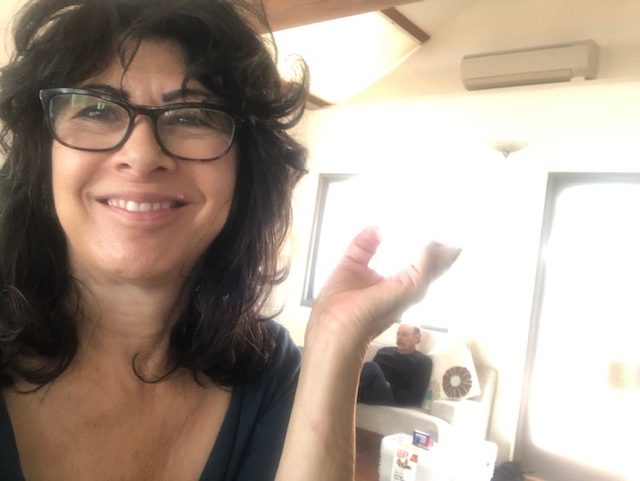
Anna Fawcett (above): Actors can self test, and call backs can be done via Zoom. If one wants to do a normal casting, the casting agent will follow the government guidelines with distancing and how many people are in an enclosed space. It’s totally doable.
Andrew Wareham: We’ve been mainly relying on self-tapes and have been really stringent in having talent/actors monitor their health and advise us of any concerns ahead of the shoot.
Cameron Gray: Thankfully, most of our casting partners are well set up for remote casting. We’ve also adapted our own website to incorporate an online casting portal. We had some recent success with this on a campaign for a telco that required families in domestic environments. The idea was to cast real families in their actual homes which required both components, casting and scouting to be moved into an online application environment. The response was overwhelming. Perhaps it was something to do with so many folks being at home, but we had more families submit online video applications than we’ve every had for a similar call out done in the traditional way.
Tanya Spencer: Our process is for the first round to be self-casting; with the cast being sent the director’s brief in writing, as well as detailed notes to help them give their best performance based on what we are looking for. The directors still want to meet with the cast in person during the recall stage so they can be confident that we are making the right recommendation to our clients and the agents make that happen with staggered call back times and social distancing. The process works well but no doubt much more time consuming both for the casting companies and the directors.
CB: What technology have you been relying on to best collaborate with your staff/teams?
Michael Ritchie: We are using Zoom for interoffice group meetings, agency briefings and pre pro meetings and Slack for direct response communication and emails. We are all using Q-take for streaming the actual shoot to agencies and clients. This is working really well, plus good old email is not bad either.
Edward Pontifex: Prior to COVID-19, we were using Zoom regularly, now it’s being used all the time. We were only using it for our overseas based directors as we always felt it beneficial for them to be able to have face-to-face meetings. The theory is even more pertinent today and now we use it for all of our catch-ups.
Oliver Lawrance: Zoom video, all day every day. And then just the usual stuff of Dropbox, Digital Pigeon and eight thousand text messages.
Anna Fawcett: Zoom, WhatsApp, emails and Messenger, the usual suspects.
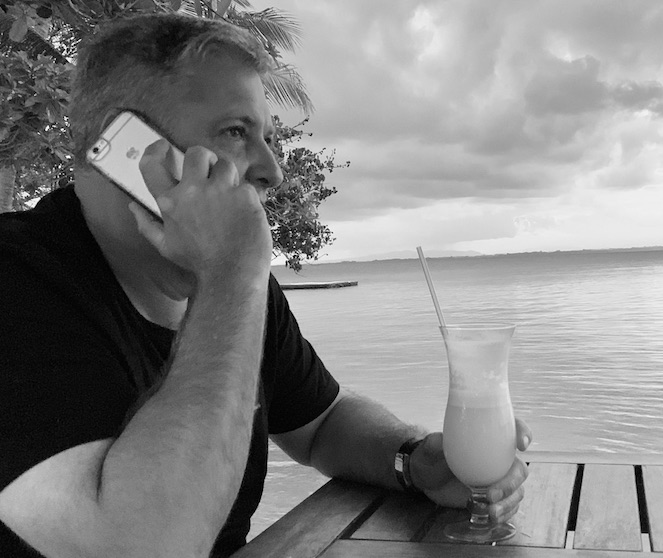
Andrew Wareham (above): I think like everyone else Zoom has certainly saved the day for a lot of businesses! Although, anyone who knows me knows that I love a good old fashioned chat (or woff) on the phone. That’s always been the case and will certainly continue to be the case, long after COVID leaves us all alone! The team and I are on email the majority of the time, so we’re always touching base electronically in some form.
Cameron Gray: We’re all on a Google platform as our mail etc. is all through Google. They visibly stepped up their video conferencing game mid lock-down, likely in response to how well Zoom was doing. Outside of that, we’re all on Slack, which we find is a really useful way to stay connected as a group.
Tanya Spencer: With our offices in Brisbane, Sydney and Melbourne, we were already well versed with using Zoom as part of our internal catch-ups, so it comes naturally to us to connect digitally.
CB: Any upsides to working from home or more remotely?
Michael Ritchie: It requires more focus and planning which possibly has an effect on the creative process a little. I think every win remotely is a good win and when it gets hard or there is a difference of creative opinion it’s slightly harder to align. We have certainly streamlined how we do some things and that’s great but nothing beats the collaborative power of being there. That all said, we will become better because of this, we will innovate, and in terms of change, we will be fast tracking five years into one year. We have to embrace that, and if you don’t, you will get left behind.
Edward Pontifex: It feels like there are a few more hours in the day with not having to travel and having less people interrupt you being in the office. From a personal perspective, my kids definitely enjoy me being around all of the time.
Anna Fawcett: Time saved on travel to and from the office. That’s about it for me.
Andrew Wareham: We’re very fortunate though that our business doesn’t live or die by the office. As long as our core team have access to a phone and their laptop, then realistically they could be working from anywhere in the world (and they do)!
I think like anything though, there will always be pros and cons to working from home. Sometimes the simplest of tasks can be so much harder when you don’t have your team directly with you to hash it out together, but in general, our Taxi team seem to enjoy working from the comfort of their home and having a bit more control and balance of when they log on and off for the day.
On a positive note, the local council is widening the road at the front of our office at the moment, so I’m sure everyone’s grateful that they don’t have to compete for parking!
Cameron Gray: It has actually been more efficient to communicate as a small online cluster. We’ve found that we are strangely more connected as a group than we were when working prior to the lockdown. Bad news for commercial landlords.
Tanya Spencer: For me, working remotely does make you appreciate how much easier production, and the day-to-day of running a business, is face-to-face.
CB: In your opinion, has there been adequate government support for the production industry?
Michael Ritchie: I think it’s really hard for the freelancers. Many of them have fallen into the gaps with what is on offer from the government. That’s hard. I think the company support with JobKeeper has been super helpful.
Edward Pontifex: So many of our essential crew members are freelance. Like members of industries such as tourism and hospitality, they have been hit the hardest. It has been great to see the government offer new initiatives such as JobStart and JobKeeper, but it would be great to see them extend this to something more industry focused. It would be devastating to lose our crews to other industries.
Oliver Lawrance: Not remotely in terms of the film crews. As we all know, freelance crew make up a large portion of our workforce and they have been left out of JobKeeper and have to apply for the smaller allowance available on JobSeeker. Media-focused stimulus packages have focused on newspapers and TV stations, and so far the government hasn’t addressed the thousands of crew involved in the actual making of the shows, films and commercials that feed those outlets.
The support for small businesses such as production companies like us has been pretty good once JobKeeper and the PAYG tax deductions became available, and this should keep most production companies afloat for the next six months and then hopefully we can all weather the recession.
The Greens have also announced a commendable policy this week to pour a lot of money into the screen production sector because they recognise how many people we employ. It would be great to see the two major parties take up the cause so we can keep creating content and employing people.
Anna Fawcett: I can’t imagine how hard it is for any government to navigate through this. But it does seem that the film industry is unique and some of the support doesn’t take this into account, so some freelance crew have not been getting the benefits. The Arts do not seem to be a priority but we have all relied on them during lockdown to get us through. Imagine the world without movies and music, etc.
Andrew Wareham: I think governments have been reacting as fast as they can, given the circumstances. That support is general for all business though and not directly targeted specifically at our industry as such. It therefore has helped us a lot as a company, however a lot more needs to be done for the freelance community that appears to have slipped through the cracks. At the end of the day, the freelancers are a massive part of our industry and hugely contribute to the success of our business.
Now that everyone has had a chance to breathe, there certainly are some government initiatives and incentives starting to come to the fore. Screen Queensland in particular has been quite public about supporting screen practitioners and screen businesses through the crisis and I am sure that will continue for some time to come.
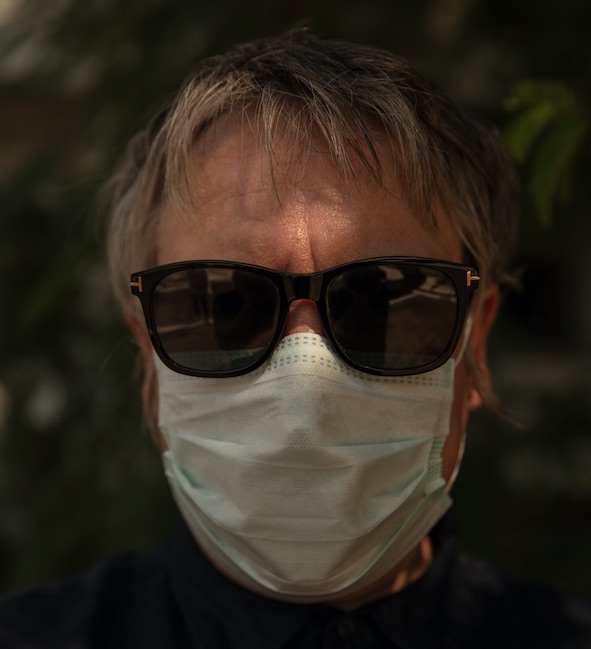
Cameron Gray (above): Only time will tell. Between the initial stimulus and the JoKeeper, there has been enough of a safety net to keep businesses ticking over in the short term. What happens next will be all important. Do we make the same mistakes we made post GFC and transition straight into a period of austerity? Or, will we recognise that the economy will need ongoing stimulus to recreate the large amount of jobs that will have been lost?
Tanya Spencer: Whilst I can’t speak for the crew, from a business point of view, our company has been supported by the government with JobKeeper for our internal staff. This has been great in taking the pressure off and not having to stand down any employees.
CB: What do you most look forward to as the country starts to re-open again?
Michael Ritchie: I look forward to being in the office together, all of us picking up nuances that make live communication so powerful. I look forward to the social aspects of work and relaxation, more than I ever thought. But I do like getting out of social events I didn’t want to go to anyway!
Edward Pontifex: Being able to connect with people beyond 1.5m. Being on set this week, it was extremely hard not to shake people’s hands or in some cases give them a hug and kiss. However, it was so wonderful to see the joyful expressions on everyone’s faces being back at work. I can’t wait to see that more regularly.
Anna Fawcett: I look forward to the fear factor being removed from our lives and plan making.
Andrew Wareham: I’d love to see production busy again – plain and simple. I think most people who work in advertising and production like the thrill of the chase. They tend to excel under pressure and like to have multiple things on the go at once and deadlines to hit. Over the past few months, I think there are quite a few practitioners who are missing the usual pace of our business. I know I am.
Cameron Gray: Looking forward to inventing new and creative ways to deal with even more inadequate budgets.
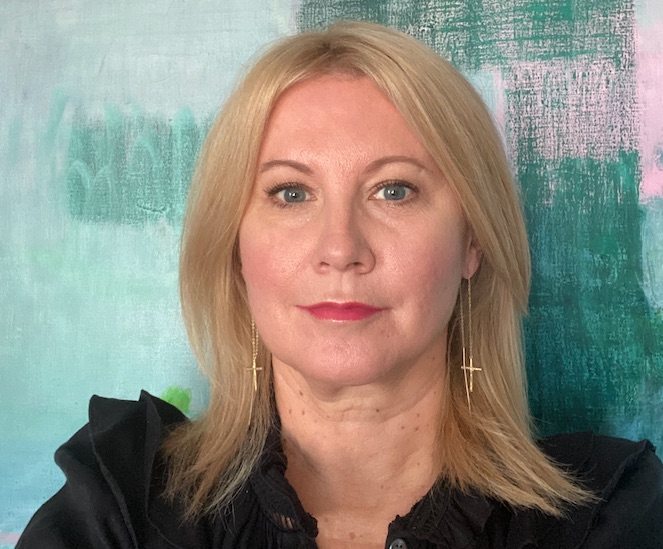
Tanya Spencer (above): The freedom to jump on and off a plane to our interstate offices.
CB: Do you think the Aussie production industry has held up well compared to other international markets?
Michael Ritchie: I think there is a sense of camaraderie and support and we have worked together on things with each other as companies. I am talking to people in the US and UK all of the time, and it’s pretty clear we display a really innovative approach to times like these. Granted our country has done bloody well in dealing with the virus, but seeing how all of the good production companies are adapting, I would go so far as to say we are potentially displaying ‘world’s best practice’ at the moment. I don’t see any reason why Australian production companies could not take on a significant slice of the world market in this time. We just need to be really bloody safe and really smart. The main point here is that we all need to be safe for each other. If someone does not hold up the protocols properly or cuts corners, we will all suffer. We need to be strong in managing our safe sets and we are only as good as each shoot that happens. I am SO pleased for any of our competition to be shooting and I just urge them to shoot as safely and smartly as they possibly can. We learn each week how to do it better and I urge us all to keep that learning happening.
Edward Pontifex: Thankfully we haven’t had the same degree of challenges that other countries have experienced, so we have been very lucky in that respect. I am also very proud of the way our industry has banded together to support each other throughout this torturous event. Not only have I received constant calls on business viability, but check-ins on mental health as well. It’s wonderful to see how such adversity can bring out the best in people.
Oliver Lawrance: I definitely have hope for the future and I now see things gradually picking up and adapting to this pandemic. The Australian production industry has taken a big hit and the times ahead will be challenging, but we’re lucky to live in a country that got ahead of the outbreak and is able to shoot when so many aren’t. As we get back on our feet as a country, we stand ready to collaborate on new projects with our amazing friends at Australian & New Zealand agencies, and those from America, Singapore and beyond who look to Australia as a place where work can still happen.
Anna Fawcett: Only time will tell, who can survive a blitz like this. I think that the production industry worldwide has been massively hit, as have so many other businesses.
Andrew Wareham: Absolutely. I think in general Australians have a lot to be grateful for. We’ve been able to flatten the curve rather quickly in comparison to other countries and that will only have a positive side effect as our business starts to turn over again. If you speak to any production colleagues overseas – the States in particular – they are absolutely dismayed by the shutdown of their industry and the fact that it is unlikely to re-open anytime soon. They are stuck in an uncertain limbo, something that Australia hasn’t experienced to that degree, and fingers crossed we don’t in the future.
Cameron Gray: I am only accessing a limited group of anecdotal examples, but much like the overall response, it seems we are in a better space than most other countries – certainly in Europe and the US. There is now a great opportunity for Australian production services to put into practice all of the remote working systems that we’ve been forced to adapt to and focus on encouraging global clients to consider creating their next project here in Australia. We have world class crews, a cogent COVID-19 shooting protocol, a very low dollar and, hmmm, an ok internet connection. Get on it.
Tanya Spencer: Australia’s ability to continually film through the COVID-19 period has definitely set us apart. We have made a conscious effort to continue to connect with producers from around the world through our affiliation with ‘OWNED’ and our enquiries to film in Australia from overseas due to the restrictions particularly from England and America have never been higher, which is one positive to come out of all of this.
